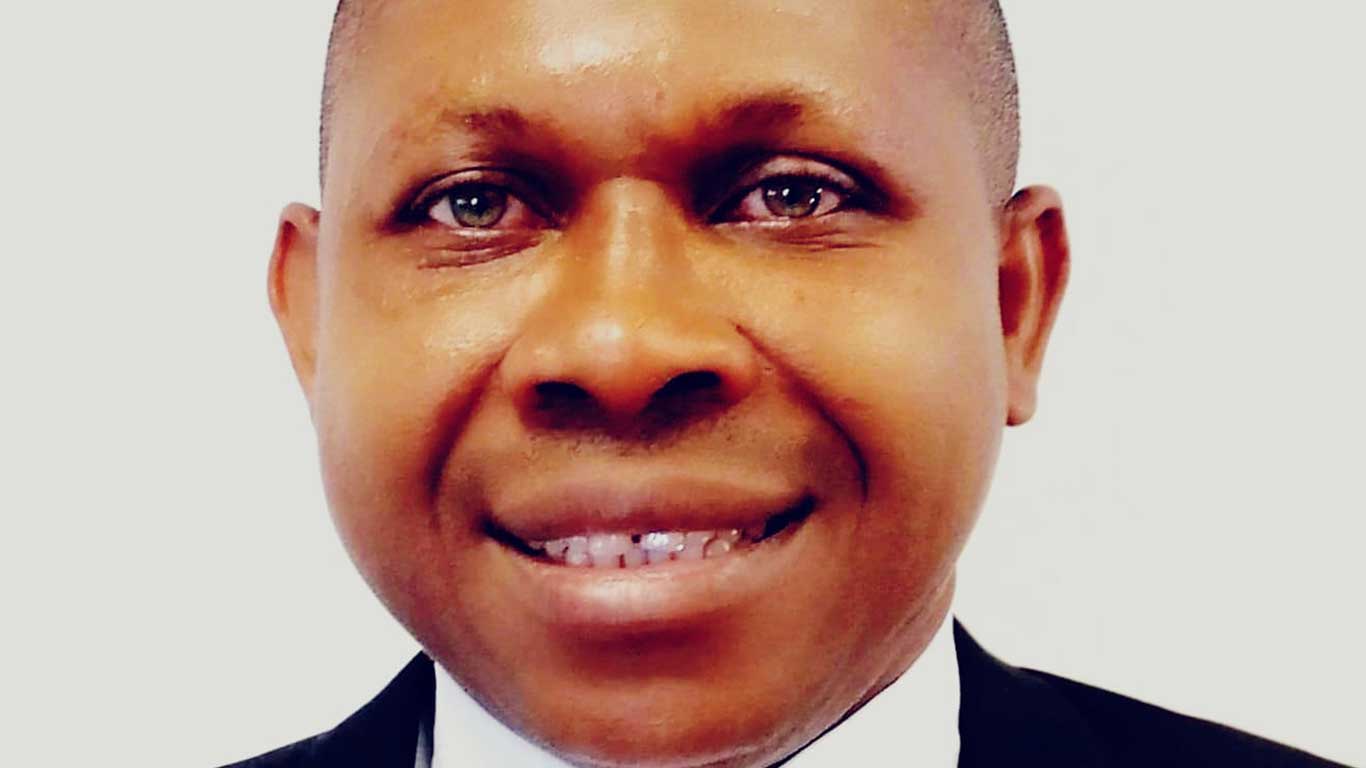
Having had some difficulties understanding mathematics in his early days in school, but struggled to make a grade that enabled him gain admission into tertiary institution, Ugochukwu D. Onumadu, vowed to allay the challenges of passing mathematics for those coming after him.
With this determination, he began to seek for ways to make the dreaded subject lovable to students at all levels. Starting from his early years in school to the period he was undergoing his post graduate studies, the experiences garnered formed part of Maths Language for Beginners (1).
The book’s sole aim is to introduce students, especially those finding the subject difficult and complex to understand, the latest techniques to make them havea grasp of the subject and improve their performances in school.
Disclosing his drive, the author said: “The book was born out of my personal experience with mathematics and a deep desire to help others overcome the challenges I once faced,” continuing, he revealed, “growing up, I struggled with mathematics, sitting for entrance exams multiple times before a dedicated mathematician shared the key to understanding its logic, which helped me pass my exams and also, ignited a lifelong passion for the subject in me that spurred me to pursue it further in my academics.”
Overcoming the hurdle, young Onumadu’s likeness for numeric subjects grew to the extent that he resolved to study a numeric course; firstly, statistics and later, mathematics.
Armed with a bachelor’s in Statistics from University of Imo State University (IMOSU)and master’s degrees in statistics from the University of Lagos (UNILAG), and also in mathematics and an MBA, couple with his over 15 years of teaching both subjects, Onumadu is now grounded to proffer solutions on how to demystify the highly dreaded subject.
Drawing from his well of experience, he realised that students most times approach the subject with fear, making it to appear as an insurmountable challenge, instead of being a skill to be mastered. It is in the light of this that he came up with mathematics language, a technique that simplifies each theme or concept; presenting each topic or concept in a language form to be followed in a step-by-step guide to unfold solutions to any problem posed.
According to him, just as understanding the parts of speech in English language enables one to speak good English, so, it is with mathematics language. Understanding the language of mathematics would enable students identify and apply the mathematics “grammar” and “vocabulary” on any topic; know the logic and theorems.
This technique, a move away from the norm in most mathematics books, is the result of the over 15 years of research and teaching in different schools in Africa, the U.S.A. and Europe. Testing the technique among group of students across different schools has shown some level of improvement on their performances, especially those who before now never believed they could have a good grade in the subject. The technique presents mathematics as a structured language with its own parts of speech.
This methodology provides key to mastering mathematics and bridges the gap between students’ fear and their potential.
Explaining the import of spending almost two decades researching on how to make the teaching-and-learning of mathematics easier, Onumadu noted it is as a result of the importance of the subject to humanity, stressing that mathematics deserves prompt attention because it is a compulsory subject for university admission in most countries across the world and also, a foundation course for critical thinking, problem-solving and analytical skills.
According to him, the subject is relevant in every field, science, technology, engineering, commerce, humanities, among others, and also opens doors to innovation and diverse career opportunities.
Disclosing some of his findings, while embarking on the research, he said: “My pioneering research in Germany demonstrated the robust application of mathematics and artificial intelligence (AI) in real-world challenges, specifically in global real estate. The study used mathematical techniques like multiple linear regression with interaction effect to model and analyse over 2.6 million apartment data points and uncovered key determinants of rental in Munich and Berlin. By applying data-driven methods, we provided insights that guided real estate investments, urban planning and policy development.
“This research advanced the real estate sector and contributed to innovations in artificial intelligence and machine learning apart from highlighting the vital role of mathematics in solving complex global problems. The work bridged continents, offering actionable solutions for Africa, Europe and the U.S.A. and also emphasised mathematical modeling in shaping industries and improving lives.”
Listing fear, uninspiring teaching methods, weak foundational skills, myths about mathematics being inherently tricky and challenging, among others as reasons students fail and hate the subject, Onumadu disclosed that this is not only limited to Nigeria or Africa, but across the globe, adding that many students are overwhelmed and as such see the subject to be shrouded in complexity.
To address these challenges, the author noted requires practical and engaging teaching strategies that support struggling students and promote a growth-mindset to build confidence and resilience in learning the subject.
According to him, Maths Language for Beginners (1) is specially prepared to address all these challenges, including reshaping how learners engage with the subject, saying the groundbreaking book published on Amazon in 2019, while he was undergoing his master’s degree in mathematics studies at the Technical University of Munich, Germany, offers a revolutionary perspective on mathematics education.
“I introduced the concept of parts of speech to explain the fundamental elements and this has enhanced deeper comprehension and problem-solving abilities. The impact of this linguistic analogy approach has been profound as schools and students have attested to its effectiveness in enhancing understanding and driving academic excellence in mathematics,” he said.
Apart from allaying phobia and building confidence in students, Onumadu revealed that the book also addresses common misconceptions apart from revealing the secrets and logic of understanding mathematics, providing clear explanations and relatable examples that make the subject less intimidating.
Currently an adjunct lecturer in the Mathematics Department and a doctoral scholar at Austin Peay State University, Clarksville, TN, USA, the author is taking his time to work on the Part 2, the author, who in 2013 founded and incorporated UG Mathematics and Statistics Adventures for mathematical and statistical analysing services would want mathematics and other science subjects to be localised and taught in our local tongues, beginning from the nursery school to primary and lower levels of our secondary school, saying this will enhance the comprehension of numeric and science concepts among African students aside engaging them for development.
He said: “Understanding the key elements and application of mathematics are important to the growth of any nation, and it would be of great importance for Nigeria and other African countries to begin to think of teaching mathematics and other science subjects in our local languages, if we want any significant technological development in the continent.”






